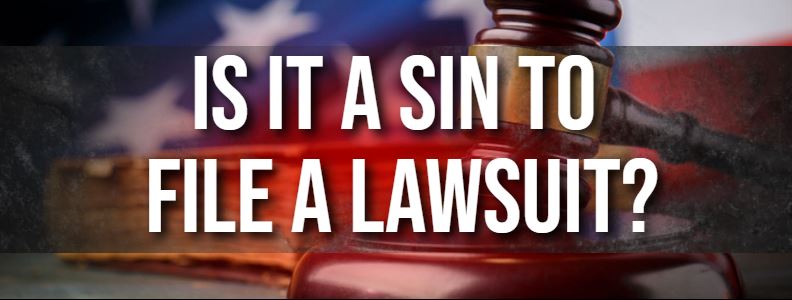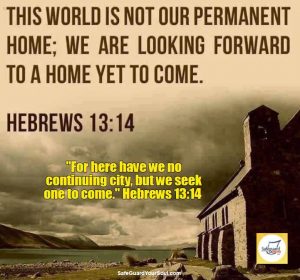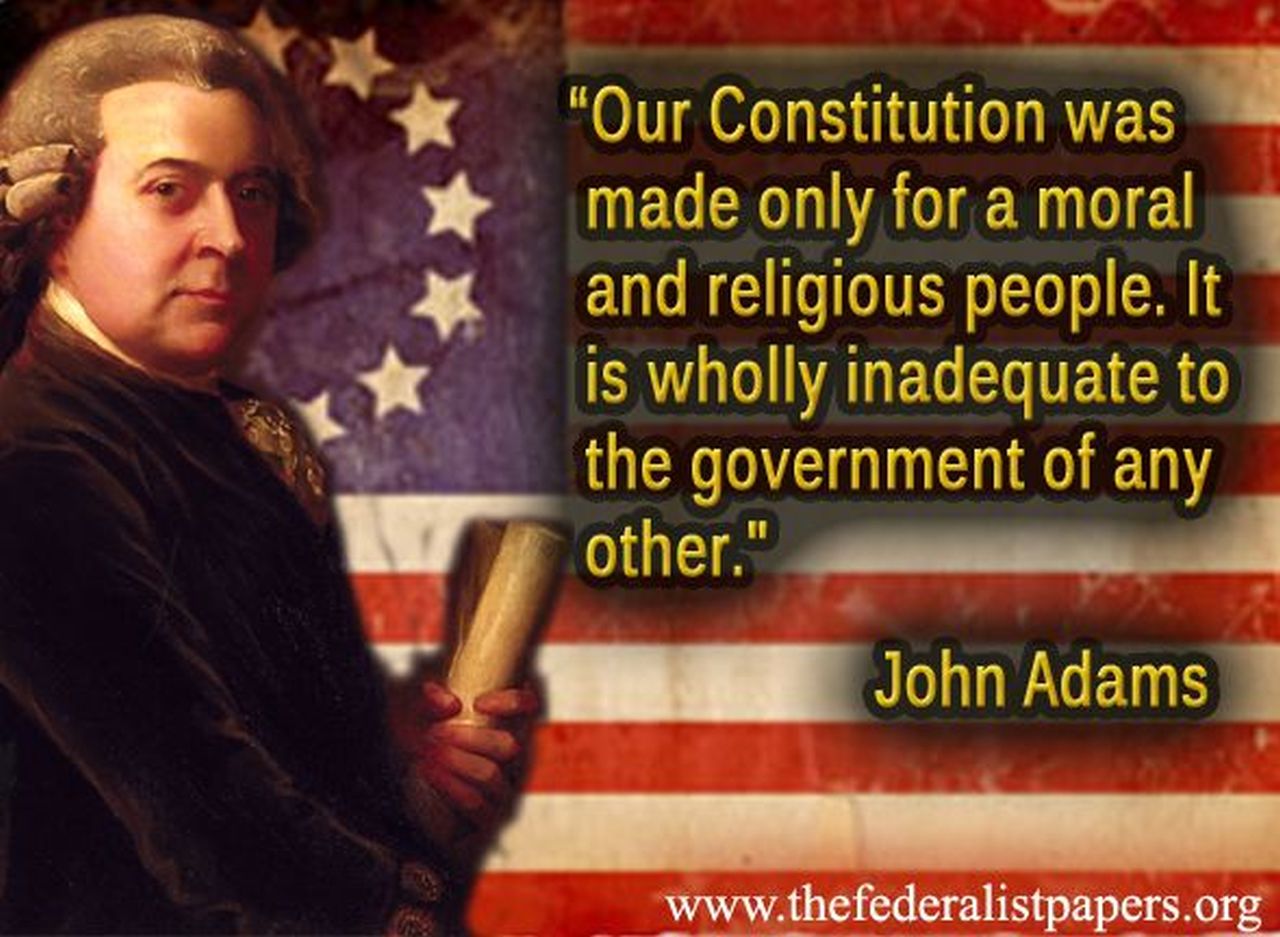Remember when grandparents and great-grandparents stated that they only had an 8th grade education? Well, check this out. Could any of us have passed the 8th grade in 1895?
This is the eighth-grade final exam from 1895 in Salina, Kansas, USA


Are we not told that the law is for the ungodly, perhaps for remedial judgment in light, in preparation for the coming, the ultimate Judgment? (1 Timothy 1:9-11)
Yes.
We must be careful not to dismiss one clearly stated divine truth for another. This must all be assimilated (1 Corinthians 2:13). Through diligent prayerful study we rightly divide the Word of truth (2 Timothy 2:15).
Suing a believer is sin, clearly (1 Corinthians 6). Yet suing an unbeliever is never once listed on any of the many and extensive lists of sins in God’s Word. So, it must be treated as a NON-essential since it is never specifically named as a sin. And what did Paul write concerning things, practices that are NOT essential to an individual believer’s salvation? – “Let not him that eateth despise him that eateth not; and let not him which eateth not judge him that eateth: for God hath received him. 4 Who art thou that judgest another man’s servant? to his own master he standeth or falleth. Yea, he shall be holden up: for God is able to make him stand. 5 One man esteemeth one day above another: another esteemeth every day alike. Let every man be fully persuaded in his own mind.” (Romans 14:3-5)
Read Acts 16:25-40
As was the case with the magistrates in Philippi, today, many of those in places of civil authority (granted them by THE PEOPLE) wish to hide their crimes, their violation of the rights of THE PEOPLE. Watch this:
“But Paul said unto them, They have beaten us openly uncondemned, being Romans, and have cast us into prison; and now do they thrust us out privily (secretly)? nay verily; but let them come themselves and fetch us out. 38 And the serjeants told these words unto the magistrates: and they feared, when they heard that they were Romans.” Acts 16:37-38
Seems Paul is saying “Okay so you jailed us illegally, violated our rights, and yet now you want to secretly release us so as to escape accountability for your crime?”
Just as Paul was a Roman with rights, as Americans we also have Rights. A right cannot be taken away. Paul appealed on the basis of the rights he had as a Roman. He and Silas had been falsely imprisoned. It was a violation of their rights as Roman citizens.
One commentator noted:
“Acts 16:38 [feared, when they heard that they were Romans] They had a right to fear, for if this case was taken to Rome they would be deposed or probably executed for this violation of Roman law. Romans were zealous in protecting their citizens.”
FB Meyer writes:
“Paul was perfectly justified in insisting upon his civil rights when he had the opportunity, Act_16:37. It made the way easier for his new converts.”
Legal action against the ungodly is something Paul asserted, his Roman citizenship (Acts 21-22). Was Paul in sin to do so? No.
Concerning using what is available to the believer, brother Taylor writes:
“Use what we can for His kingdom, use what we will of any good thing that be placed on the sacrificial altar of the living God.” David Taylor
EVER wonder if it’s biblical that the believer in our day should hearken to and appeal based on the Constitutional law of our land? Wonder no more.
The word “Roman” appears 5 times in the Bible, all in the New Testament canon. In each case it is referring to the apostle Paul’s Roman citizenship and his appeal on that jurisdictional premise. Here it is.
“And as they bound him with thongs, Paul said unto the centurion that stood by, Is it lawful for you to scourge a man that is a ROMAN, and uncondemned?” Acts 22:25
“When the centurion heard that, he went and told the chief captain, saying, Take heed what thou doest: for this man is a ROMAN.” Acts 22:26
“Then the chief captain came, and said unto him, Tell me, art thou a ROMAN? He said, Yea.” Acts 22:27
“Then straightway they departed from him which should have examined him: and the chief captain also was afraid, after he knew that he was a ROMAN, and because he had bound him.” Acts 22:29
“This man was taken of the Jews, and should have been killed of them: then came I with an army, and rescued him, having understood that he was a ROMAN.” Acts 23:27
If Christ’s apostle Paul appealed based on his earthly, his Roman citizenship, we know on this basis alone that such is not a sin.
Not only did the apostle Paul APPEAL based on his earthly citizenship as a Roman, he also APPEALED to the higher courts/authorities when the Jews sought to shut him up and even have him killed (Acts 25:12, 21, 25; 26:32).
There is no Scripture that forbids legal action except taking another BELIEVER before the unjust in their courts.
Of 1 Corinthians 6:1, FB Meyer writes:
“1 Corinthians 6:1-11
SETTLING DIFFERENCES BETWEEN BRETHREN
The Apostle was clearly of the opinion that it was wiser for a Christian to bear injustice and wrong than to go to law before a heathen tribunal. It would have been a happy solution of myriads of disputes if his advice had been followed. Where a course of lawless crime has to be arrested in the interests of the weak and defenseless, it is necessary to call in the law and police to vindicate and protect; but when our private, personal and individual interests alone are concerned, we should be wise to submit our case to arbitration or suffer patiently.”
Notice the context …. Paul is clearly as always, writing to believers, to the church, not the lost … He begins this letter to the Corinthian believers this way:
“Paul, called to be an apostle of Jesus Christ through the will of God, and Sosthenes our brother, 2 Unto the church of God…“ 1 Corinthians 1:1-2
“ye go to law one with another” 1 Corinthians 6:7
Lawsuits Against Believers
1Co 6:1 Dare any of you, having a matter against another, go to law before the unjust, and not before the saints?
1Co 6:2 Do ye not know that the saints shall judge the world? and if the world shall be judged by you, are ye unworthy to judge the smallest matters?
1Co 6:3 Know ye not that we shall judge angels? how much more things that pertain to this life?
1Co 6:4 If then ye have judgments of things pertaining to this life, set them to judge who are least esteemed in the church.
1Co 6:5 I speak to your shame. Is it so, that there is not a wise man among you? no, not one that shall be able to judge between his brethren?
1Co 6:6 But brother goeth to law with brother, and that before the unbelievers.
1Co 6:7 Now therefore there is utterly a fault among you, because ye go to law one with another. Why do ye not rather take wrong? why do ye not rather suffer yourselves to be defrauded?
1Co 6:8 Nay, ye do wrong, and defraud, and that your brethren.
Believers are to settle any issues among themselves, with the least amount of people knowing, and not in front of the world (Matthew 18:15-17, etc.).
Of 1 Corinthians 6:1, William MacDonald writes:
“1 Corinthians 6:1-11
Lawsuits among Believers (6:1-11)
The first eleven verses of chapter 6 have to do with lawsuits among believers. News had come to Paul that some Christians were going to law against their fellow believers—before the judges of this world. So he lays down these instructions of lasting value for the church. Note the repetition of the expression “Do you not know” (vv. 2, 3, 9, 15, 16, 19).
6:1 The opening question expresses shocked surprise that any of them would think of taking a brother to law before the unrighteous, that is, before unsaved judges or magistrates. He finds it rather inconsistent that those who know true righteousness should go before men who are not characterized by righteousness. Imagine Christians looking for justice from those who have none to give!” Believer’s Bible Commentary
Personal opinions concerning not going to law with an unbeliever is the liberty of each and every one of Christ’s saints. We are never judge another believer on something that is not essential to his salvation. Romans 14
When we are done wrong in our community for example we are told to “give place unto wrath”… or give place to the civil authorities to deal with it (Romans 12:19). And this is what precedes what we know as the God-ordained civil authority chapter to punish evil doers. Also 1 Peter 1:13-14.
“Dearly beloved, avenge not yourselves, but rather give place unto wrath: for it is written, Vengeance is mine; I will repay, saith the Lord.” Romans 12:19
Another commentator writes the following on this matter:
“The whole context of 1 Corinthians 6:1-6 deals with disputes in the church, but Paul does reference the court system when he speaks of judgments concerning things pertaining to this life. Paul means that the court system exists for matters of this life that are outside the church. Church problems should not be taken to the court system, but should be judged within the church.
Acts chapters 21–22 talk about Paul being arrested and wrongfully accused of a crime he did not commit. The Romans arrested him and “the commander brought Paul inside and ordered him lashed with whips to make him confess his crime. He wanted to find out why the crowd had become so furious. As they tied Paul down to lash him, Paul said to the officer standing there, ‘Is it legal for you to whip a Roman citizen who hasn’t even been tried?’” Paul used the Roman law and his citizenship to protect himself. There is nothing wrong with using the court system as long as it is done with a right motive and a pure heart.
In summary, should Christians take each other to court over church matters? Absolutely not! Should Christians take each other to court over civil matters? If it can in any way be avoided, no. Should Christians take non-Christians to court over civil matters? Again, if it can be avoided, no. However, in some instances, such as the protection of our own rights (as in the example of the apostle Paul), it may be appropriate to pursue a legal solution.”
God is Justice and Commands Justice in the Earth
“The God of Israel said, the Rock of Israel spake to me, He that ruleth over men must be just, ruling in the fear of God.” 2 Samuel 23:3
Deuteronomy 16:18-20 Justice
Deu 16:18 Judges and officers shalt thou make thee in all thy gates, which the LORD thy God giveth thee, throughout thy tribes: and they shall judge the people with just judgment.
Deu 16:19 Thou shalt not wrest (pervert) judgment; thou shalt not respect persons, neither take a gift: for a gift doth blind the eyes of the wise, and pervert the words of the righteous.
Deu 16:20 That which is altogether just shalt thou follow, that thou mayest live, and inherit the land which the LORD thy God giveth thee.
Adam Clarke on Deuteronomy 16:18-20
“Judges and officers shalt thou make – Judges, שפטים shophetim, among the Hebrews, were probably the same as our magistrates or justices of the peace. Officers, שטרים shoterim, seem to have been the same as our inquest sergeants, beadles, etc., whose office it was to go into the houses, shops, etc., and examine weights, measures, and the civil conduct of the people. When they found any thing amiss, they brought the person offending before the magistrate, and he was punished by the officer on the spot.”
John Wesley on Deuteronomy 16:18-20
“Deuteronomy 16:18
Judges – Chief magistrates to examine and determine causes and differences. Officers – Who were subordinate to the other to bring causes and persons before him, to acquaint people with the sentence of the judges, and to execute their sentence. Thy gates – Thy cities, which he here calls gates, because there were seats of judgment set. Pursuant to this law, in every town which contained above an hundred and twenty families, there was a court of twenty three judges; in the smaller towns, a court of three judges.”
William MacDonald on Deuteronomy 16:18-20
“16:18-20 Judges must be honest, righteous, and impartial. They should not accept a bribe because a bribe makes a man incapable of judging fairly.” Believer’s Bible Commentary
Though perfect justice will come when Christ returns and sets up His kingdom, it seems to this disciple that believers are to in a measure execute divine justice in the earth. In this disciple’s perspective, it seems that God at times uses His people to facilitate or dispense His justice.
Psalms 149
Psa 149:1 Praise ye the LORD. Sing unto the LORD a new song, and his praise in the congregation of saints.
Psa 149:2 Let Israel rejoice in him that made him: let the children of Zion be joyful in their King.
Psa 149:3 Let them praise his name in the dance: let them sing praises unto him with the timbrel and harp.
Psa 149:4 For the LORD taketh pleasure in his people: he will beautify the meek with salvation.
Psa 149:5 Let the saints be joyful in glory: let them sing aloud upon their beds.
Psa 149:6 Let the high praises of God be in their mouth, and a twoedged sword in their hand;
Psa 149:7 To execute vengeance upon the heathen, and punishments upon the people;
Psa 149:8 To bind their kings with chains, and their nobles with fetters of iron;
Psa 149:9 To execute upon them the judgment written: this honour have all his saints. Praise ye the LORD.
Psalm 9
Psa 9:16 The LORD is known by the judgment which he executeth: the wicked is snared in the work of his own hands. Higgaion. Selah.
Psa 9:17 The wicked shall be turned into hell, and all the nations that forget God.
Psa 9:18 For the needy shall not alway be forgotten: the expectation of the poor shall not perish for ever.
Psa 9:19 Arise, O LORD; let not man prevail: let the heathen be judged in thy sight.
Psa 9:20 Put them in fear, O LORD: that the nations may know themselves to be but men. Selah.
“Wherefore the law is holy, and the commandment holy, and just, and good.” Romans 7:12
“Clouds and darkness are round about him: righteousness and judgment are the habitation of his throne.” Psalms 97:2
“All that found them have devoured them: and their adversaries said, We offend not, because they have sinned against the LORD, the habitation of justice, even the LORD, the hope of their fathers.” Jeremiah 50:7
“The LORD bless thee, O habitation of justice, and mountain of holiness.” Jeremiah 31:23
100’s of Christ-centered, Scripture-rich podcasts for your edification in Christ. | A powerful cache of posts on the Return of Jesus – and how to be ready. | Store

So, in the gym this morning, a lady near me was struggling to get a large plate on each side of the barbell. So, I began to help her and she said “No Ingles” which means she does not speak English. So, I affirmed that she speaks Spanish and I began to speak God’s Word to her in her language. Her face lit up and she thanked me. God is good!
 Jesus says “The seed is the word of God” and His people are planting it today in the hearts of others in order for God to bring them to Himself. God be praised in Jesus Christ our LORD and Savior today and forever!
Jesus says “The seed is the word of God” and His people are planting it today in the hearts of others in order for God to bring them to Himself. God be praised in Jesus Christ our LORD and Savior today and forever!
How were we, how are others “born again”? – “the the word of God.”
“Being born again, not of corruptible seed, but of incorruptible, by the word of God, which liveth and abideth for ever.” 1 Peter 1:23
Sharing the Gospel in Spanish! YOU can do it! Go here.
The body of Christ in the earth is TEAM JESUS!
The body of Christ is “striving together for the faith of the gospel”, … “WE are labourers together with God.” (Philippians 1:27; 1 Corinthians 3:9)
Let’s lift this up now….. Holy Father, You are the LORD of the harvest. In the name of Jesus Christ, we here and now ask You to send forth more laborers and supporters into the fields which You told us are ready to be harvested. In Jesus’ name. Thank You LORD Jesus !
Ever notice how some church goers live their life trying to get others to go to their church? Question: As you read God’s Word, do you see Jesus, His apostles, or the earliest followers of Jesus inviting people to their church? Or, do you see them bringing the love, the truth, the Gospel to the people?
“And Jesus went about all the cities and villages, teaching in their synagogues, and preaching the gospel of the kingdom, and healing every sickness and every disease among the people. 36 But when he saw the multitudes, he was moved with compassion on them, because they fainted, and were scattered abroad, as sheep having no shepherd. 37 Then saith he unto his disciples, The harvest truly is plenteous, but the labourers are few; 38 Pray ye therefore the Lord of the harvest, that he will send forth labourers into his harvest.” Matthew 9:35-38
Oh and this…
“Therefore they that were scattered abroad went every where preaching the word.” Acts 8:4
Those in charge in the so-called “church” buildings are perpetuating their own existence and not taking the Gospel of Jesus to the people. Unlike Jesus and all of His true disciples throughout New Testament history, they have no concern for lost souls.
Tens of thousands of saints and sinners are being reached each month with the Word of God via a multiplicity of diverse venues.
Books like the Born Again book and Moments with Our Master, etc. continue to go forth to the incarcerated. Today a copy of the Born Again book was sent to a man who confessed to the murder of 16 people (Sean Lannon). GOD is able saints!
Giving God praise for those who support HIS work. Your support is vital. Jesus Christ is KING! and He’s coming soon! “WE are labourers TOGETHER with God.” (1 Cor 3:9) | Because You Care
JESUS HASN’T AND WILL NOT RESCIND HIS GREAT COMMISSION MANDATE. ARE YOU PARTICIPATING? He commanded us to “GO ye into all the world and preach the gospel to every creature.” (Mark 16:15)
 Jesus is Bringing Incarcerated, Captive Souls to Himself: YOUR GIFTS ARE REACHING BEHIND THE COLD HARD WALLS OF PRISON CELLS – INTO THE SEARCHING, HUNGERING SOULS OF A CAPTIVE AUDIENCE OF MEN AND WOMEN: Inasmuch as there is financial supply, ministry books continue to flood jails across our nation – touching the hearts of the incarcerated for Christ! These books will be read by many, Captive audience.
Jesus is Bringing Incarcerated, Captive Souls to Himself: YOUR GIFTS ARE REACHING BEHIND THE COLD HARD WALLS OF PRISON CELLS – INTO THE SEARCHING, HUNGERING SOULS OF A CAPTIVE AUDIENCE OF MEN AND WOMEN: Inasmuch as there is financial supply, ministry books continue to flood jails across our nation – touching the hearts of the incarcerated for Christ! These books will be read by many, Captive audience.
Sending the Divine Light into “The Prison House” Here
“Thou preparest a table before me in the presence of mine enemies: thou anointest my head with oil; my cup runneth over.” Psalms 23:5
YOUR PRAYER: Holy Father, I ask You now to use me for Your glory. Set my life apart to Yourself. Bless this life to be truly crucified with Christ and raised for Your eternal glory my LORD Jesus. I love You Jesus. I love You dear Father. In Jesus’ name.
If we are low spiritually, it could only be for 1 reason – we didn’t stay filled. Get filled! Stay filled! Overflow!
“Blessed are they which do hunger and thirst after righteousness: for they shall be filled.” Matthew 5:6
“The Lord gave the word: great was the company of those that published it.” Psalms 68:11
This recent letter below is from Brother John Becknell in Kentucky. John and I met when I called his store after seeing a Fox news article featuring their no-mask policy store front sign. It was a divine connection for certain and we’ve been blessed to continually supply brother John and the believers around him with Bibles and the Moments for Our Master 365 devotional books. Also, John referred us to a women’s recovery home there in his area which we’ve been blessed to also supply with Bibles and copies of the devotional books.
“Brother Todd, To say the least … it’s been busy here. Alvin’s was blessed to give away 510 free Christmas dinners to anyone in the community who came into the store the Sunday after Christmas Day. We had made all the preparations for the dinners to be served on Christmas Day… but we got about 7 or 8 inches of surprise snow and black ice, temperatures dropped into the teens; ice everywhere, broken water lines on Christmas Eve. The ice was really bad; cars off the road all around us. Several stranded people came into the store and stayed until the roads were passable Friday night. We gave away coffee and snacks to those who came in out of the storm. We had to postpone the dinner until Sunday… it was a nightmare, but God saw us through and Sunday we had a glorious time! We were able to give away the Bibles you sent. We made a display and placed them on a table directly in front of our hot bar. We talked with many people and gave the ones that wanted one a Bible… There’s nothing better than being able to feed food to the body and nourishment to the Spirit! As you know Christmas is a hard time for many families and we got to minister Hope and pray with several people… Thanks for all the prayers and support especially during Christmas with the Bibles and devotionals… ‘People need Hope, they need healing, they need to reach out for the Master, they need the Word.’ Matt 9:22. God Bless you and your ministry for sending the Word; it will bring much light in this dark place… John (and yes, we could use a few Bibles and Devotionals).” John Becknell
“Say not ye, There are yet four months, and then cometh harvest? behold, I say unto you, Lift up your eyes, and look on the fields; for they are white already to harvest. 36 And he that reapeth receiveth wages, and gathereth fruit unto life eternal: that both he that soweth and he that reapeth may rejoice together. 37 And herein is that saying true, One soweth, and another reapeth. 38 I sent you to reap that whereon ye bestowed no labour: other men laboured, and ye are entered into their labours.” John 4:35-38
Below are recent letters from sister Dana, a dear disciple we have had fellowship with for years and whom the ministry outreach has been blessed to supply – due to the love offerings of Christ’s saints.
Here’s How Our LORD Instructed us to Pray
“And Jesus went about all the cities and villages, teaching in their synagogues, and preaching the gospel of the kingdom, and healing every sickness and every disease among the people. 36 But when he saw the multitudes, he was moved with compassion on them, because they fainted, and were scattered abroad, as sheep having no shepherd. 37 Then saith he unto his disciples, The harvest truly is plenteous, but the labourers are few; 38 Pray ye therefore the Lord of the harvest, that he will send forth labourers into his harvest.” Matthew 9:35-38
Feel free to lift a lady named Cindy in prayer….. the following was given to her…
@Cindy – We have all sinned against God and shall all stand before our Maker, the Judge of our eternal souls, to give full account. “The fool hath said in his heart, There is no God. They are corrupt, they have done abominable works, there is none that doeth good.” (Psalms 14:1) Lying, stealing, coveting, using His holy name in vain, lusting, fornication, etc. are sins we’ve all committed and are 100% guilty and will pay for our own sins in hell for eternity. The Almighty owes you nothing. You need Him. He does not need you.
More testimonies and stories here>>> Because You Care | Moments with Our Master 365 Devotional book | Grocery Basket Evangelism! [podcast] | Evangelism | Revolutionary Evangelism book | Support | STORE

“For unto us a child is born, unto us a son is given: and the government shall be upon his shoulder: and his name shall be called Wonderful, Counsellor, The mighty God, The everlasting Father, The Prince of Peace. 7 Of the increase of his government and peace there shall be no end, upon the throne of David, and upon his kingdom, to order it, and to establish it with judgment and with justice from henceforth even for ever. The zeal of the LORD of hosts will perform this.” Isaiah 9:6-7
There will be no perfect gov’t till JESUS returns – the government will then be assumed by Heaven’s King, It will then be upon HIS shoulders right? Is. 9:6-7 It will only then be perfect!!!!
Jesus is coming.
FATHER, in the name of Jesus Christ, we ask You now, afresh, to expose and to plunder the wickedness, the evil forces seeking to take this nation down (Matthew 10:26-28). Call and grant true repentance to those who call themselves by Your holy name (2 Chronicles 7:14-15). Heal this land that Your holy name is glorified and Your people live “quiet and peaceable” lives (1 Timothy 2:1-8). In the name of Jesus Christ, amen.
Doing justice requires us to “CONDEMN THE WICKED”
Deuteronomy 25:1
“If there be a controversy between men, and they come unto judgment, that the judges may judge them; then they shall justify the righteous, and condemn the wicked.”
It is an “abomination to the LORD” to justify the wicked or to condemn the just:
“He that justifieth the wicked, and he that condemneth the just, even they both are abomination to the LORD.” Proverbs 17:15
NO matter what, we know God is a just God – a God of justice. So, we pray….
Holy Father, may justice be done in this nation. Expose the roots of wickedness that pose as righteous. May the Haman’s be hung in the gallows they created to murder others. Root out the wicked doers and cause Your people to humble themselves in true repentance and obedience to do Your great commission to teach Your Word to all. In the name of Jesus Christ. Amen.
If our leaders and country and the peace thereof doesn’t matter …
Glad Trump escaped the bullet, death, attempted assassination. Biblical Fact: God hears, answers, and uses the prayers of His people to do His bidding and anoints and sends men to destroy evil, God-less regimes. The LORD will do as He sees fit – NOT as you see fit, sinner. in case it weren’t obvious enough – He doesn’t need our puny, no-count permission. Read of Jehu’s anointing to do just that in 2 Kings 9 when he was anointed by God to destroy the kingdom, regime of Ahab and Jezebel. Also, Nebuchadnezzar, HEATHEN king of Babylon, was anointed by God to destroy many nations and was called by the LORD His “hammer.” (Jeremiah 50:23) Cyrus, a PAGAN, the ruler of Persia, was called by God His “battle axe.” (Jeremiah 51:20) The Bible also says this of Cyrus: “Thus saith the LORD to his anointed, to Cyrus, whose right hand I have holden, to subdue nations before him; and I will loose the loins of kings, to open before him the two leaved gates; and the gates shall not be shut;” (Isaiah 45:1) These biblical facts make it clear that God, who owns all, uses evil men at times to do His bidding, His work. The kings, civil rulers were not children of God and the LORD used them. If HIS divine plan is to use Trump, anyway HE pleases. including to destroy an evil regime, a syndicate and system, that’s up to HIM.
Who do YOU think you are, piece of dust?
“Talk no more so exceeding proudly; let not arrogancy come out of your mouth: for the LORD is a God of knowledge, and by him actions are weighed.” 1 Samuel 2:3
“The fear of the LORD is to hate evil: pride, and arrogancy, and the evil way, and the froward mouth, do I hate.” Proverbs 8:13
Beware though: Some confuse God protecting and using Trump with him being a true Christian. Unless we hear the name of Jesus Christ, a salvation testimony, coming out of a man’s mouth, we cannot believe they are a true born again Christian (Acts 4:12; Luke 12:8-9). Even the devils, demons believe in God and tremble but we know they are not part of God’s kingdom (James 2:19).
Jesus says: “Also I say unto you, Whosoever shall confess me before men, him shall the Son of man also confess before the angels of God: 9 But he that denieth me before men shall be denied before the angels of God.” (Luke 12:8-9)
Civil government is the ordination of God where He appoints men to punish “evildoers” (Romans 13; 1 Peter 2:13-14). He is all-wise and all-loving! We His people are commanded to pray for “all in authority” while we fulfill Christ’s Great Commission command to make Him known, that is, the “one mediator between God and men”, Jesus Christ (1 Timothy 2:1-6) The civil government servants are “God’s ministers” that “are sent by him for the punishment of evildoers” so that the family unit and body of Christ are kept safe in this fallen world where wicked men abound (Romans 13; 1 Peter 2:13-14).
This is biblically stated and therefore non-negotiable.
Let that sink in.
Father, in the name of Jesus Christ, we petition You now to let the light shine on the darkness of this government and for justice to come upon the wicked. In Jesus’ name.
Praying for our leaders and nation doesn’t mean it’s our main focus and yet if God’s people don’t pray, the nation falls (2 Chronicles 7:14; Jeremiah 29:7; 1 Timothy 2:1-8).
Personally, this disciple has to watch, to monitor and examine myself daily. From birth was taught patriotism and was a Marine 7 years. VERY thankful for America. So it’s in my blood but I must remain abiding in Christ and uphold Jesus as “first love” and have no idols! (Revelation 2:4-5) God will damn all idolaters (Exodus 20:3-4; 34:14; Ephesians 5:5-9; Revelation 21:8, etc.).
Those who care and fight for our nation and yet aren’t obeying Christ by participating in the LORD’s Great Commission, are in need of returning to Jesus as “first love” – first priority (Revelation 2:4-5).
God commands us to pray and give thanks for all in authority (1 Timothy 2:1-3).
GOD gave us those freedoms so we can quietly and peaceably – without chaos – make known Christ the “one mediator between God and men.” (1 Timothy 2:1-8)
Some still wish to vaunt their ignorance, self-righteously pretending that civil government isn’t of God or doesn’t invoke their personal participation, namely in the divine command for us to pray for “all in authority.” (1 Timothy 2:1-3) And there’s divine incentive given us in such praying – that we might lead “quiet and peaceable” lives (1 Timothy 2:1-3).
“And seek the peace of the city whither I have caused you to be carried away captives, and pray unto the LORD for it: for in the peace thereof shall ye have peace.” Jeremiah 29:7
Not caring for your nation is like not caring to patch the hole in the sinking boat you’re in. Foolishness. This is how unappreciative some are – they act too spiritual to involve themselves enough to obey God and pray for those in authority. Then they self-righteously blame those who are concerned and praying as being idolaters. Silly. Novice. God commanded you to be interested enough in your nation and leaders and incentivized enough to pray to Him for your nation, for all in civil authority in that nation – “that we may lead a quiet and peaceable life in all godliness and honesty” and “for in the peace thereof shall ye have peace.”
Yet in that “quiet and peaceable life” God desires our society to experience, the body of Christ is to make known the “one mediator between God and men, the man Christ Jesus” – this is all in the same passage – amazing!!!! (1 Timothy 2:1-6) …. oh and men are to pray in our nation, everywhere! (v8) BAM No matter what, the Great Commission must be the top priority of God’s people – feeding His sheep and evangelism (Matthew 28:18-20; Mark 16:15-20; Luke 24:47).
Wow. Wow. Wow. More on this glorious 1 Timothy 2 passage in a moment.
Speaking of how God uses wicked men, Sharon Cornella Scutti writes:
“Jesus, when He commanded, meant GO into all the world (systems) — Matthew 5:16. . ‘Let your light so shine before men, that they may see your good works, and glorify your Father which is in heaven.’ (Matthew 5:16)”
From Bible.org
“First, civil government is secular in nature while Christianity is spiritual. Christians are aliens and strangers, just passing through this world (see 1 Peter 1:1). Their citizenship is in heaven (Philippians 3:20). Second, the state can look upon Christianity as competitive, even hostile to its authority. The Christian’s highest authority is God. In Rome, Caesar was “god.” Because of this, Romans considered Christians as atheists. Christianity was eventually seen as treasonous. Third, at times Christians were required to “obey God, rather than men” (see Acts 5:29), which openly confirmed the government’s suspicions. Fourth, government officials, either unconsciously or willingly, used their authority to actively oppose the church and to persecute Christians.”
Some Christians draw a hard line, claiming that because Jesus and His apostles weren’t witnessed being involved in civil government (although Paul did appeal using his Roman citizenship), that Christians today should have nothing to do with it. Is this true? Is that what “come out from among them” really means? (2 Corinthians 6:17) The context of this “come out” command is speaking of being separate in the way we, as God’s people, live in this fleeting world, and not of necessarily being completely disconnected from the people and institutions of this world. Paul says we would have to leave this world to get away from the sinners of this world – “then must ye needs go out of the world.” (1 Corinthians 5:10) Yet, in this fleeting world, God desires civility and therefore ordained civil government to keep things civil – “for the punishment of evildoers.” (1 Peter 2:14)
Think about what America would be like if there were no consequences for hurting others. There were no crime systems or jails. Look at the rampant looting, murder, assaults happening now on our streets where civil authorities in those areas are refusing to do their God-ordained duty of protecting the people, the community. And, when someone is jailed for a crime, they are immediately released to go commit the same crime and worse. Without civil authorities, there’s no deterrent from evil men doing every evil under the sun.
 Notice in this important passage below how the LORD informs us that it’s His will that we pray for those in civil authority in order that we, His people living in this fallen world temporarily, can “lead a quiet and peaceable life” (civility) as they carry out His great commission, making known Jesus, the one and only “mediator between God and men.”
Notice in this important passage below how the LORD informs us that it’s His will that we pray for those in civil authority in order that we, His people living in this fallen world temporarily, can “lead a quiet and peaceable life” (civility) as they carry out His great commission, making known Jesus, the one and only “mediator between God and men.”
“I exhort therefore, that, first of all, supplications, prayers, intercessions, and giving of thanks, be made for all men; 2 For kings, and for all that are in authority; that we may lead a quiet and peaceable life in all godliness and honesty. 3 For this is good and acceptable in the sight of God our Saviour; 4 Who will have all men to be saved, and to come unto the knowledge of the truth. 5 For there is one God, and one mediator between God and men, the man Christ Jesus; 6 Who gave himself a ransom for all, to be testified in due time.” 1 Timothy 2:1-6
This is biblical authority and command – to at least pray for those in authority, to submit to them, to recognize them as being from God Himself and ordained by Him for His all-wise purposes. Pray and thank God for civil authority – These are divine commands. In my opinion, it’s not a sin to be involved with the civil process such as in voting, etc. We are not under the same government structure as were Jesus and His apostles. They had no say-so. It’s an individual liberty afforded by God and people shouldn’t be judged for doing so or not doing so because it’s a non-essential (Romans 14). To say it’s a sin as do some, seems to be coming from a novice perspective. Being involved in the civil process by prayer and otherwise, should not take away from the preaching of the Word, the Great Commission Jesus gave us (Matthew 28:18-20; Mark 16:15-20, etc.). One writer notes:
“God ordained (allowed) civil government for the old creation as a necessary evil/stop-gap measure to maintain order.”
Civil government, governors, civil servants are “sent by him” but to do what? – “for the punishment of evildoers” and what else?:
“Submit yourselves to every ordinance of man for the Lord’s sake: whether it be to the king, as supreme; 14 Or unto governors, as unto them that are sent by him for the punishment of evildoers, and for the praise of them that do well.” 1 Peter 2:13-14
God’s people are to pray according to His will which is His Word – “for the punishment of evildoers” in the country they are in. Also, civil authorities are ordained of God to “praise them that do well.”
Submit yourselves to every ordinance of man for the Lord’s sake: whether it be to the king, as supreme; 14 Or unto governors, as unto them that are sent by him for the punishment of evildoers, and for the praise of them that do well.” 1 Peter 2:13-14
Civil government ceases to be sanctioned by God when it begins punishing instead of praising “them that do well.” Read that passage above again, real slow, carefully.
Let’s sum up what God ordained civil government to do:
They are “sent by him for the …
We see here how those who “do well” “praise” the God-given authorities, civil government agents, the police.
Notice this: Let’s read the passage again….
“for the praise of them that do well.”
“Submit yourselves to every ordinance of man for the Lord’s sake: whether it be to the king, as supreme; 14 Or unto governors, as unto them that are sent by him (God) FOR THE PUNISHMENT OF EVILDOERS, and for the praise of them that do well.” 1 Peter 2:13-14
So, when civil government “authorities” begin to punish “them that do well,” they are acting unlawfully and must be prosecuted as traitors.
WHEN a husband or wife orders their spouse to do something sinful, the child of God will refuse to do it. With the same principle in mind, namely civil disobedience, WHEN the government tells the child of God to do something that is not biblical, the disciple of Jesus will not obey which we see with the apostles (Acts 4:23-31). Get a clue. Some people have been deceived, intentionally misled by the 501(C)(3) Savior-rejecting, state-controlled frauds, to believe that any and everything the civil government orders them to do they must obey. Silly. Gullible. Stupid. Ungodly, Un-biblical. Repent. Isn’t that what the Germans did? – they obey hitler’s civil government orders which began softly, subtly, which led to 6 million murdered Jews?
AND, these unlawful orders such as a mask “mandate” is a laughable fraud that cowards have obeyed.
“Do not comply. Daniel, Shadrach, Meshach and Abednego did not comply. Along with the apostles when they were told to quit preaching the Gospel.” Karen Cochran
Mandatory Mask Madness: Flaunting Stupidity
WARNING TO COPS, SHERIFFS, JUDGES, CLERKS OF COURT, AND ATTORNEYS WHO CARRY OUT UNLAWFUL ORDERS (such as closing business, mask “mandates”, etc.)…. There’s no justifying their cowardly, traitorous actions, period. They are violating the RIGHTS of the people by obeying unlawful orders after they swore an oath to uphold and defend the Constitution and to protect WE THE PEOPLE from government tyrants who would dare make unlawful orders which contradict Constitutional law. Read the 1st Amendment. Those who do such are traitors. They can and should be held liable, by name, in their individual and official capacities in Federal court. Under the color of law they are breaking their oath of office as they perpetrate, carry out tyranny and should be held accountable. Then this stuff will stop. The cowardly German people are the exact people to blame for complying with Hitler’s playbook, from the beginning when he began with more minor dictates and then escalated to the murder of 6 millions Jews (masks, lock downs, vaccinations, etc).
It not a sin to care for, pray for, and vote in your present earthly country (2 Chronicles 7:14; Jeremiah 29:7; Romans 13; 1 Timothy 2:1-6; 1 Peter 2:13-14, etc.). It is a sin to put your earthly country before, above your heavenly citizenship (Philippians 3:18-21; Hebrews 11:10; 13:14; Revelation 21, etc.). When we truly trust the LORD, He can change the governments of men because “the most high ruleth in the kingdoms of men.” (Daniel 4:32) Let us follow Jesus and petition God in His holy name for “ALL in authority” in this nation as we are about our “father’s business,” making known the “one Mediator between God and men, the man Christ Jesus” who desires “all men to be saved, and to come unto the knowledge of the truth.” (Luke 2:49; 1 Timothy 2:1-6).
OR
1 Timothy 2:1-3, Jeremiah 29:7, Romans 13; 1 Peter 2:13-17, etc., speak directly of civil government which is 1 of the 3 institutions ordained by God for mankind in this present fallen world.
When Christ’s future reign is established in the restored earth, all enmity will be removed and predator and prey shall dwell at peace together.
“The wolf also shall dwell with the lamb, and the leopard shall lie down with the kid; and the calf and the young lion and the fatling together; and a little child shall lead them.” Isaiah 11:6
“The wolf and the lamb shall feed together, and the lion shall eat straw like the bullock: and dust shall be the serpent’s meat. They shall not hurt nor destroy in all my holy mountain, saith the LORD.” Isaiah 65:25
While we are commanded to pray for “all in authority,” we must remember that this is not our home. Read Revelation 21.
“…governors (civil authorities), as unto them that are sent by him FOR THE PUNISHMENT OF EVILDOERS, and for the praise of them that do well.” 1 Peter 2:14
Any question as to why God ordained civil authorities in this fallen world, this fallen age?
God Ordained Civil Authorities…. but for what? Please read the verse below and answer in the comments.
“Or unto governors, as unto them that are sent by him for the punishment of evildoers, and for the praise of them that do well.” 1 Peter 2:14
Your Answer here: _________________________________________________
________________________________________________________________
We live in a fallen world. God instituted 1. the Family, 2. the Church, and 3. Civil Government. Civil government protects the people, including the family and the body of Christ.
What has GOD ordained civil authorities to do” – “for the punishment of evildoers” …. Let’s review again this central passage on the biblical doctrine of civil authorities and their purpose from God:
“Submit yourselves to every ordinance of man for the Lord’s sake: whether it be to the king, as supreme; 14 Or unto governors, as unto them that are sent by him for the punishment of evildoers, and for the praise of them that do well.” 1 Peter 2:13-14
When the cops are dealing with you, comply. Simple. Many are not with us today because they didn’t. Our policemen are people too and their lives matter and they have the right to defend themselves. Comply or you may die, especially if you are reaching for a weapon. If you are mistreated by civil authorities, in our nation we have Cons which makes provision for redress of grievances, or restitution for governmental wrong doing.
“Put them in mind to be subject to principalities and powers, to OBEY MAGISTRATES, to be ready to every good work,” Titus 3:1
Keep in mind that there is a proper use of force, of military, of civil authorities (Romans 13; 1 Peter 2:13-14). That proper function of civil authority is to punish evil doers, and to protect the citizens from foreign and domestic enemies, “evildoers”.
Mask Mandates – Masking, Muzzling the People
Romans 13 does not instruct believers to comply with tyranny. Let’s rightly divide. Excuse me, if that were the case, WHY didn’t the apostles obey the civil rulers of their day and stop preaching Jesus? (Acts 4:23-31) Not only did they not obey, they disobeyed those civil rulers and their orders as did Daniel and the 3 Hebrew children, right? Right. The apostles not only disobeyed, they cried out to God for a fresh infilling of the Holy Ghost and more boldness to do exactly what those civil rulers made illegal. Selah.
No mask. No muzzle. No vax. No compromise. No fear!
A Constitutional RIGHT cannot be taken away unless you simply give in and give it up like a coward. RIGHTS are not privileges. Privileges can be taken away but RIGHTS cannot be.
Under a good civil ruler, the military is in better hands than than when regimes perpetuate lawlessness at home and endless wars abroad for money and other evil NWO/luciferian dealings. See why we should obey God and pray?
It’s a blessing when elected leaders have a general fear and reverence for God. No, I didn’t say they had to be a born again Christian. Yet, we should be thankful when, if we have leaders who have a great respect for God, like Benjamin Franklin and Thomas Jefferson, even neither of them knew Jesus.
EVERY democrat is a wicked sinner. They hate anyone who represents law and order because they love voting to MURDER innocent babies and call it choice. Repent now sinner. The blood of these precious babies is on your evil, wicked hands before a holy God who is the Judge of your eternal soul. Hell awaits.
Believers are not called to judge civil authorities as they are to judge leaders and other believers in the church. In the 1 Corinthians 5 passage below, the word “without” means outside of the church, outside the realm, the domain, the jurisdiction of the body of Christ:
“For what have I to do to judge them also that are WITHOUT? do not ye judge them that are within? 13 But them that are WITHOUT God judgeth. Therefore put away from among yourselves that wicked person.” 1 Corinthians 5:12-13
With the exception of Jesus calling Herod a fox, we have very little in the way of rebukes toward civil authorities.
The way Jesus and his apostle’s dealt with false prophets was different than the way they spoke of civil authorities, Christ and His apostles openly exposed and named false teachers within the church world. Think of how Jesus lambasted the pharisees of his day in Matthew 23. How about when Paul wrote the 4 chapters of 2 Timothy and named 8 deceivers, 2 per chapter, etc.
Jesus says render unto Caesar (civil authorities) that which is Caesar’s and yet it also says that if you support a false prophet then you the be judged with them and to expose false prophets. What’s the difference? The difference is that we are not to treat civil authorities as we do bad actors posing as Christian leaders who are misleading Christ’s flock as they use His holy name in vain.
Some misuse, take out of context Romans 13. Be careful and may God bless us with His discernment. No, God’s people are not to obey any and every rule of “authority”. The saint of Christ is the temple of the Holy Spirit and not the state (1 Corinthians 3:16). We are to render to Caesar (the state) only that which belongs to Caesar and no more. “We ought to obey God rather than men.” (Acts 5:29)
It’s horrid and concerning that abortion has not ended. Keep praying saints. Ask God to grant us law and order which is His stated purpose for civil authorities (1 Timothy 2:1-3; Romans 13; 1 Peter 2:13-17). That law and order, as the Constitution makes clear, should punish all murder, including that within the womb (5th Amendment, 14th Amendment, etc.).
MESSAGE RECEIVED:
“It is God’s job to judge, it is ours to love each other!”
REPLY:
Yes God is the JUDGE …. and what did the Judge tell US to do? Let’s look….
Deu 19:16 If a false witness rise up against any man to testify against him that which is wrong; Deu 19:17 Then both the men, between whom the controversy is, shall stand before the LORD, before the priests and the judges, which shall be in those days; Deu 19:18 And the judges shall make diligent inquisition: and, behold, if the witness be a false witness, and hath testified falsely against his brother; Deu 19:19 Then shall ye do unto him, as he had thought to have done unto his brother: so shalt thou put the evil away from among you. Deu 19:20 And those which remain shall hear, and fear, and shall henceforth commit no more any such evil among you.
Who said obeying God means a person has to hate anyone? Loving God is the highest priority, not pandering sinful sentiment. We must walk in His love and that is coupled with obedience to Him. Executing the will, the Word of God doesn’t mean we hate anyone. Hatred in ones heart is a personal issue one must work out before the LORD. Yet to disobey the LORD by not doing what He said, is sin.
We must study the whole counsel of God’s Word and rightly divide the Word of truth (2 Tim 2:15). GOD ordained civil authorities to judge evil doers. Read Rom 13 and 1 Peter 2:13-17
What has GOD ordained civil authorities to do” – “for the punishment of evildoers” ….
1Pe 2:13 Submit yourselves to every ordinance of man for the Lord’s sake: whether it be to the king, as supreme; 1Pe 2:14 Or unto governors, as unto them that are sent by him for the punishment of evildoers, and for the praise of them that do well.
Support | STORE | Podcasts | Light of the World | Evangelism | Jesus, Light of the Word | Compassion in Light of Christ’s Soon Return | Striving Together for the Faith of the Gospel [podcast] | Prepared to be Used of God | The Return of Christ




DO we realize just how dumbed down we are? Take a look. See if you can answer even half these questions, or any of them.
Clear proof that “education” is long gone. Nearly all America has today is demonic indoctrination.
While pretending to educate people higher, satan’s communists are dumbing them down… because dumb people are easy to manipulate and control. Proof? I dare any Master degreed or PhD to answer half of these 8th Grade Primer questions from 1895.
Are we genuinely becoming more educated or are we becoming more indoctrinated? Has education in America gotten better or worse over the last century? Find out here.
Even 2 years ago, how many of us would have guessed that debating the definition of what a woman is would ever have been a question in America?
Can we legitimately claim to have a “higher education” in our day?
Anyone who doesn’t thoroughly know and have a working understanding and knowledge of the most important Book in HIS-story – the Bible – does not have a “higher education.” In light of this, we can conclude that parents who push the “get an education” foolishness instead of educating their children from birth with the Word, show exactly who they are and the fruit is pure evil (Matt hew Matthew 7:16, 20; 12:33, etc.).
“Thus saith the LORD, Learn not the way of the heathen, and be not dismayed at the signs of heaven; for the heathen are dismayed at them.” Jeremiah 10:2
Think about the lost, dark spiritual state of any parent who would push their own seed, their child, into the demonic culture of colleges and universities today – where the existence of God is questioned and condemned and where fornication and every evil known to mankind is the order of the day.
“Be ye not unequally yoked together with unbelievers: for what fellowship hath righteousness with unrighteousness? and what communion hath light with darkness? 15 And what concord hath Christ with Belial? or what part hath he that believeth with an infidel? 16 And what agreement hath the temple of God with idols? for ye are the temple of the living God; as God hath said, I will dwell in them, and walk in them; and I will be their God, and they shall be my people. 17 Wherefore come out from among them, and be ye separate, saith the Lord, and touch not the unclean thing; and I will receive you, 18 And will be a Father unto you, and ye shall be my sons and daughters, saith the Lord Almighty. ” 2 Corinthians 6:14-18
From a Christian worldview, education was never intended to be one and done or confined to obtaining a certain degree by completing courses and tests – many of which are multiple choice. No rather, the view of education from the beginning was designed to simply launch one into a lifetime of personal study. Understanding, having a working knowledge of God, is foundational to anyone’s disposition and functioning. Is it not true that “The more we learn, the more we realize we simply don’t yet know”?
“Education” today has become a stepping stone to serving the god of self – to greedily get a “degree” (to BUY it $ from an antichrist institution) in order to gain fleeting money instead of looking at learning as a way to equip them for the mission of serving God and others.
“A wise man will hear, and will INCREASE learning; and a man of understanding shall attain unto wise counsels:” Proverbs 1:5
Have be become more intelligent or more ignorant? Has the education of America’s people gotten better or devolved?
Man if this doesn’t plainly illustrate how we’ve been played for fools, nothing will.
When you read the test questions below for 8th graders from over 100 years ago, you will most likely come to the conclusion that master and doctorate level “degreed” people today couldn’t begin to answers these questions.
To illustrate how America has been indoctrinated into stupidity, let’s take a look at a….
1. Give nine rules for the use of Capital Letters.
2. Name the Parts of Speech and define those that have no modifications.
3. Define Verse, Stanza and Paragraph.
4. What are the Principal Parts of a verb? Give Principal Parts of do, lie, lay and run.
5. Define Case, Illustrate each Case.
6. What is Punctuation? Give rules for principal marks of Punctuation.
7-10. Write a composition of about 150 words and show therein that you understand the practical use of the rules of grammar.
1. Name and define the Fundamental Rules of Arithmetic.
2. A wagon box is 2 ft. deep, 10 feet long, and 3 ft. wide. How many bushels of wheat will it hold?
3. If a load of wheat weighs 3942 lbs., what is it worth at 50 cts. per bu, deducting 1050 lbs. for tare?
4. District No. 33 has a valuation of $35,000. What is the necessary levy to carry on a school seven months at $50 per month, and have $104 for incidentals?
5. Find cost of 6720 lbs. coal at $6.00 per ton.
6. Find the interest of $512.60 for 8 months and 18 days at 7 percent.
7. What is the cost of 40 boards 12 inches wide and 16 ft. long at $.20 per inch?
8. Find bank discount on $300 for 90 days (no grace) at 10 percent.
9. What is the cost of a square farm at $15 per acre, the distance around which is 640 rods?
10. Write a Bank Check, a Promissory Note, and a Receipt.
1. What is meant by the following: Alphabet, phonetic orthography, etymology, syllabication?
2. What are elementary sounds? How classified?
3. What are the following, and give examples of each: Trigraph, subvocals, diphthong, cognate letters, linguals?
4. Give four substitutes for caret ‘u’.
5. Give two rules for spelling words with final ‘e’. Name two exceptions under each rule.
6. Give two uses of silent letters in spelling. Illustrate each.
7. Define the following prefixes and use in connection with a word: Bi, dis, mis, pre, semi, post, non, inter, mono, super.
8. Mark diacritically and divide into syllables the following, and name the sign that indicates the sound: Card, ball, mercy, sir, odd, cell, rise, blood, fare, last.
9. Use the following correctly in sentences, Cite, site, sight, fane, fain, feign, vane, vain, vein, raze, raise, rays.
10. Write 10 words frequently mispronounced and indicate pronunciation by use of diacritical marks and by syllabication.
1. What is climate? Upon what does climate depend?
2. How do you account for the extremes of climate in Kansas?
3. Of what use are rivers? Of what use is the ocean?
4. Describe the mountains of N.A.
5. Name and describe the following: Monrovia, Odessa, Denver, Manitoba, Hecla, Yukon, St. Helena, Juan Fernandez, Aspinwall and Orinoco.
6. Name and locate the principal trade centers of the U.S.
7. Name all the republics of Europe and give capital of each.
8. Why is the Atlantic Coast colder than the Pacific in the same latitude?
9. Describe the process by which the water of the ocean returns to the sources of rivers.
10. Describe the movements of the earth. Give inclination of the earth.
Some have called the “education” industry in America “The greatest rip off in American history.” Why? Let’s talk about it….
 DID YOU KNOW that Charlie Kirk (TurningPointUSA), a 30 year old who can debate and destroy nearly anyone with facts, with truth, doesn’t have a college degree and doesn’t want one? Name just one “professor” who could stand toe to toe with Charlie Kirk. Crickets, right? Yes. This is but one example of the foolishness, the waste of life and money people are being led to expend upon the indoctrination system falsely called “education.” THINK: the text book for college course can be bought and read by anyone. The point is, who needs to pay big money for some smug antichrist “professor” to lead them through a book that is freely available to anyone? Better books costs much less. The King James Bible is the ultimate, the pinnacle literary source. What’s stopping you from studying, reading, learning for yourself?
DID YOU KNOW that Charlie Kirk (TurningPointUSA), a 30 year old who can debate and destroy nearly anyone with facts, with truth, doesn’t have a college degree and doesn’t want one? Name just one “professor” who could stand toe to toe with Charlie Kirk. Crickets, right? Yes. This is but one example of the foolishness, the waste of life and money people are being led to expend upon the indoctrination system falsely called “education.” THINK: the text book for college course can be bought and read by anyone. The point is, who needs to pay big money for some smug antichrist “professor” to lead them through a book that is freely available to anyone? Better books costs much less. The King James Bible is the ultimate, the pinnacle literary source. What’s stopping you from studying, reading, learning for yourself?
How many college “educated” people, of any age, do you know who could stand toe to toe and discuss Bible and world history, politics, government with Charlies Kirk? Probably none.
How many times have you read through the Bible?
How many books have your college indoctrinated friends written?
Getting a college degree has become of greed-driven enterprise on both ends – with those selling this scam and with those who wanted a college degree to make more money (many times which did not result in such and yet left them in debt for many years).
Public education was from the beginning a ploy to make Americans ignorant, to hide and change the truth, and thereby overtake a dumb society. Ignorant people are the only ones who can be controlled, used, abused, murdered, enslaved. This form of government is called communism and it enters a nation through the soft sell gateway called socialism.
People are so gullible that they never stop to realize that the so-called indoctrinated “professors” and “teachers” don’t possess any real knowledge or wisdom but rather are teaching only what they are reading from the communist, antichrist text books. SMH
By limiting being more educated to our antichrist government’s public education system, we’ve become fools (Romans 1:22). Before the explosion of the indoctrination system in America, people read voraciously for themselves. Most importantly a large percentage of Americans read God’s Word daily – the foundation for all wisdom and knowledge (Colossians 2:3-10; 2 Timothy 2:15; 3:15-17; 2 Peter 1:19-21, etc.).
“I have more understanding than all my teachers (educators): for thy testimonies are my meditation. 100 I understand more than the ancients (professors), because I keep thy precepts.” Psalms 119:99-100
The psalmist here says that he has more understanding than those in position of leadership in this day because he loved and studied the words of the Almighty!
“There is a generation that are pure in their own eyes, and yet is not washed from their filthiness.” Proverbs 30:12
Learning things, learning information doesn’t mean one is educated. Just WHAT information are we learning? Is it the truth or a twisted convolution of half-truths and lies? What’s being left out? Think agenda. Behind today’s “education” system is a luciferian communist agenda. Besides, what’s the use of learning if one is not learning the truth and is not in the truth? When speaking prophetically of the self-serving generation in which we now live, Paul spoke of our day where we see so many pseudo educated people.
“Ever learning, and never able to come to the knowledge of the truth.” 2 Timothy 3:7
Those who are blinded by their own unbelief and pride cannot “come to the knowledge of the truth” and therefore cannot be made free (John 8:31-32, 36). Meditate on this one.
Making Peace with God – Now, before it’s too late.
Support | STORE | Podcasts | The Bridegroom is Calling His Bride | Purifying Ourselves as He is Pure [podcast] | 10 Clues Your Love for God is Waxing Cold [podcast]






The Drugging of America: The Pharmakeia Sorcery Deception [podcast]


Children being Rescued in Tunnels: Happening Now – UPDATE!


Self-Examination in Preparation for the Lord’s Return


SHOCKING List of False Prophets Most Believe are True